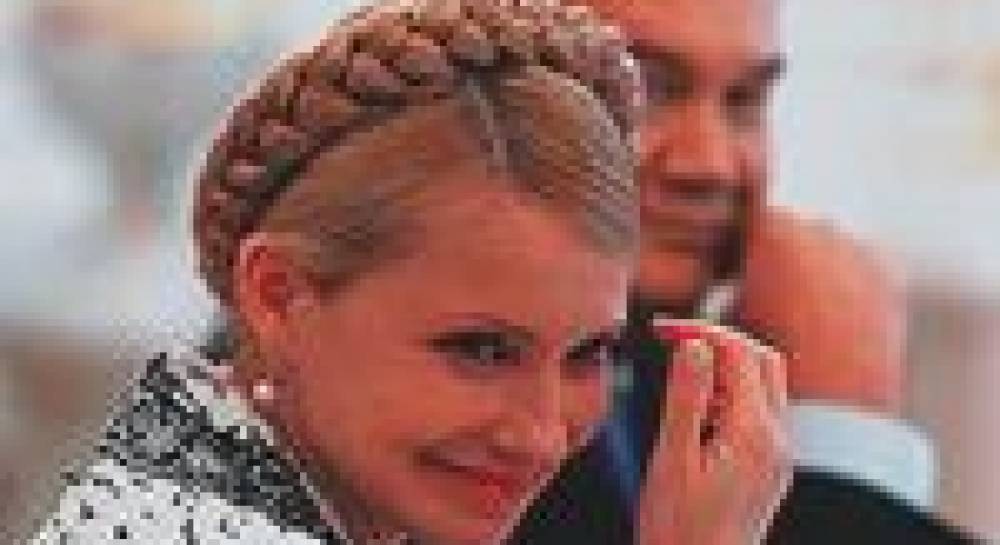
Ukraine's greatest challenge?
It is Ukraine`s elite that is blocking the country`s development.When Ukrainians go to the polls on 17 January to elect a president, they will most probably force a second round that will pit one of the driving forces...
It is Ukraine`s elite that is blocking the country`s development.
When Ukrainians go to the polls on 17 January to elect a president, they will most probably force a second round that will pit one of the driving forces behind the ‘Orange Revolution` of 2004, Yulia Tymoshenko, against its leading opponent, Viktor Yanukovych.
This is not, though, a reprise of 2004. Rather, it is a prelude to what will be the greatest challenge for Ukraine in the coming years: to ensure that the country`s elite formulates genuinely national interests and acts in accordance with them.
Tymoshenko and Yanukovych are on different sides of the political barricades – Tymoshenko as prime minister and Yanukovych as opposition leader – but both are firmly embedded in the elite`s political and economic structures. Ukraine`s political and economic elite is, clearly, not monolithic. However, its members have one thing in common: they focus on pursuing a narrow set of private and corporate interests.
Since members of the elite have specific interests, usually concentrated in particular areas of the economy and politics, they support reforms in a very partial and sporadic manner. Because the allegiance of members of the elite is often volatile, the support of particular groups or parties for specific reforms can easily disintegrate. This points to a larger problem: the shortsightedness of many political and economic actors. This short-term thinking prevents the emergence of a sustainable vision for Ukraine`s domestic development.
The substantive differences of opinion about Ukraine`s foreign-policy orientation are not reducible to the specific interests of a given individual or group, but domestic political battles and narrow spheres of interest exacerbate the polarisation of foreign-policy positions. The result are contradictory signals to the international community. This damages Ukraine`s image in the global arena, but it also prevents the emergence of a coherent foreign policy that could win broad support within Ukraine`s fragmented bureaucracy.
Because elite behaviour is primarily driven by a limited circle of interests, the chasm between the elite and Ukrainian society continues to deepen. The population`s trust in the political leadership has declined since the ‘Orange Revolution` of 2004. Since the elite has gambled away any public trust it might have attained, it is – and will be – difficult to mobilise the population behind attempts at reform.
A small minority of Ukrainians, through civil-society organisations, continue to attempt to solve social problems and to make the elite accountable for its actions; the majority of the populace, though, is convinced that they have no effective influence on or control over the elite. Equally importantly, the middle class tends to resolve economic and business-related issues by using contacts in the bureaucracy, rather than fighting for reform and long-term changes.
What is to be done?
For a significant change in elite behaviour to occur, pressure from within Ukrainian society and international insistence will be necessary. Within Ukraine, protests will be needed against illegal and self-serving actions by politicians and bureaucrats at all echelons of power. This does not have to involve organising large demonstrations, along the lines of the ‘Orange Revolution`. Small protests on the local level – to retain an existing park or to have a playground built – can be equally important and (in successful cases) become precedents that encourage others to act in a similar fashion.
On the international level, pressure for change will need to involve insisting on compliance with agreed-upon rules (as in the case of loans from the International Monetary Fund). It is especially important to include monitoring mechanisms in agreements (including the association agreement that the EU is currently negotiating) and to specify what consequences inadequate implementation would have for Ukraine.
In the best case a two-pronged strategy could emerge, in which both external actors and segments of Ukrainian society begin to pull together. This would have two additional benefits: Ukrainian society would gain more trust in the intentions of international actors and receive moral support for its own protest actions. It may be that, through mutually reinforcing internal and external pressure, major change in the self-serving behaviour of the Ukrainian elite could be achieved.
Susan Stewart is senior associate at the German Institute for International and Security Affairs (SWP) in Berlin.

